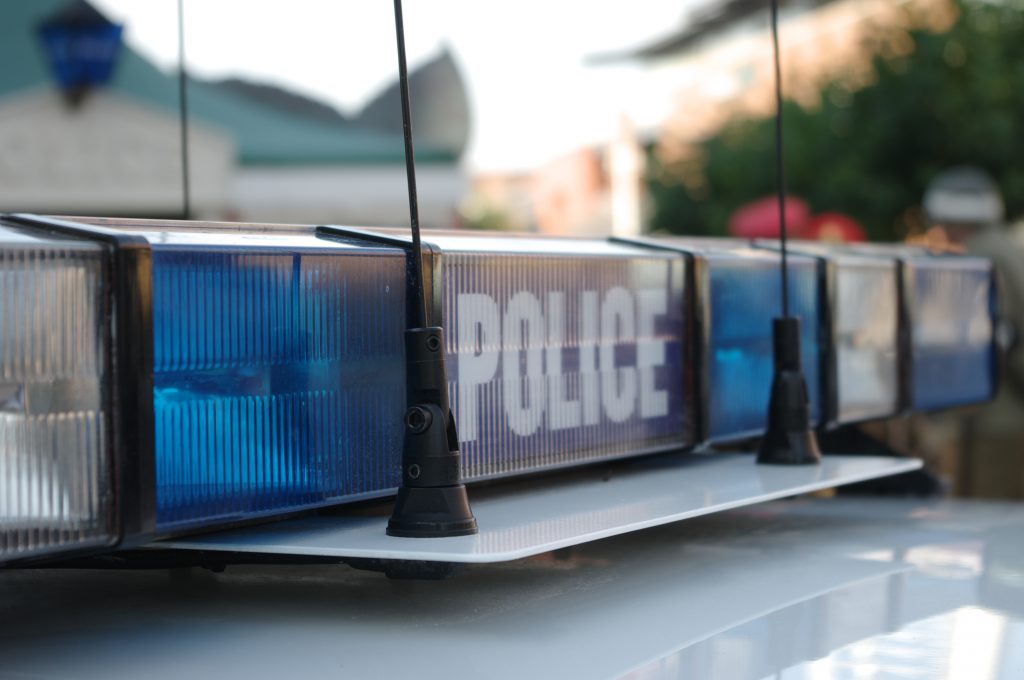77% In State Approve of Local Police Force
Most believe protests didn’t help cause of racial justice, poll done for state police union finds.

Police. Photo by Matty Ring. (CC BY 2.0) https://www.flickr.com/photos/mattring/ https://creativecommons.org/licenses/by/2.0/
A survey of community attitudes toward police and reforms of the state’s criminal justice system released by the state’s largest police union on Wednesday shows that Wisconsinites’ attitudes toward the police have become more entrenched in the two years since George Floyd’s murder by a Minneapolis police officer in May of 2020.
The survey, released by the Wisconsin Professional Police Association (WPPA) and conducted by the St. Norbert College Strategic Research Institute, asked more than 1,000 Wisconsin residents what they think of the police in their communities. Overall, 77% of respondents approved of how their local police force is handling its job.
This is the 10th year the WPPA has conducted the survey. Last year, conducted just months after Kenosha was shaken by massive protests against the police shooting of Jacob Blake, the survey found that 79% of respondents strongly or somewhat approve of their local police.
In last year’s survey, 83% of white respondents approved of their local police compared to 58% of non-white respondents. This year, 78% of white respondents approved of their local police while 66% of non-white respondents approved.
Just 37% of respondents said that protests have helped the cause of racial justice, though among non-white respondents that answer jumped to 63%.
The survey also asks how people feel about a number of proposed police reforms. Requiring that police officers wear body cameras garnered 87% support, a slight increase from 85% in last year’s survey. The issue of body cameras has been especially prevalent in Madison, which recently started a pilot program to equip some officers with them.
After the racial justice protests of 2020, a handful of districts in the state decided to end school resource officer programs that assign cops to schools, yet 63% of the survey’s respondents said they believe having an officer in public schools increases safety.
For the second year, respondents were asked about qualified immunity, the policy that protects government employees from being held personally liable for actions they take on the job. Last year, 58% of respondents said they were in favor of allowing officers to personally be sued for misconduct, but this year just 32% said they’d be in favor of ending qualified immunity.
There has been some movement toward the side of advocates for racial justice. In 2021, 57% of white respondents said police killings of minorities were isolated incidents; this year that number has fallen slightly to half of white respondents.
Police union survey shows Wisconsin’s views on policing largely unmoving was originally published by the Wisconsin Examiner.




















“Last year, 58% of respondents said they were in favor of allowing officers to personally be sued for misconduct, but this year just 32% said they’d be in favor of ending qualified immunity”. So was the phrasing of the question changed such that they didn’t ask about “officers to personally be sued” but instead asked about “ending qualified immunity”? If so, some respondents might not be familiar with the term “qualified immunity” and answered differently than they normally would have. Still a shame that so many believe taxpayers should foot the bill for poor policing. (I bet if the question was posed in that manner, i.e., “Should taxpayers should foot the bill for poor policing?”, the response would be much differentl).
Falling in the category of “white people be trippin”, “Just 37% of respondents said that protests have helped the cause of racial justice, though among non-white respondents that answer jumped to 63%” and “In 2021, 57% of white respondents said police killings of minorities were isolated incidents; this year that number has fallen slightly to half of white respondents”.